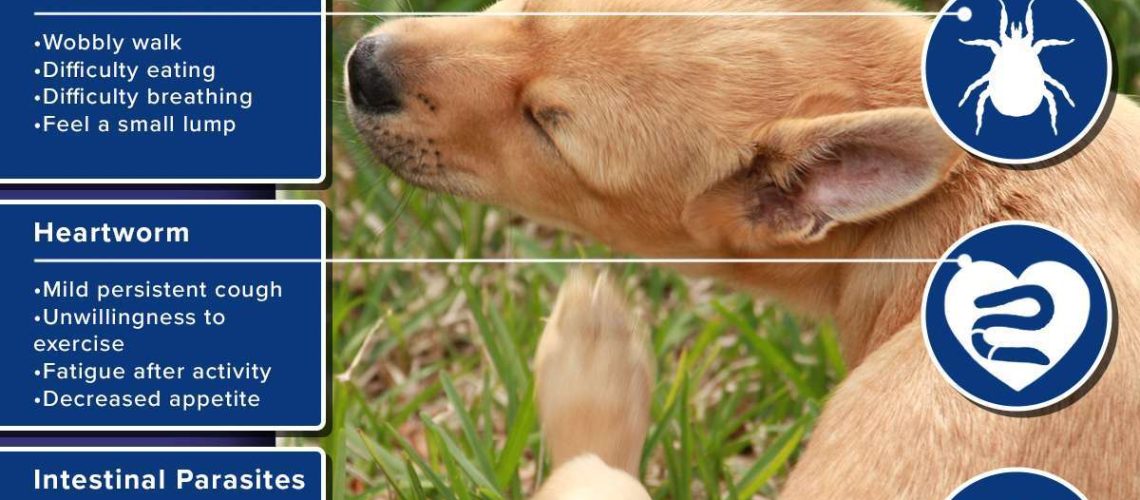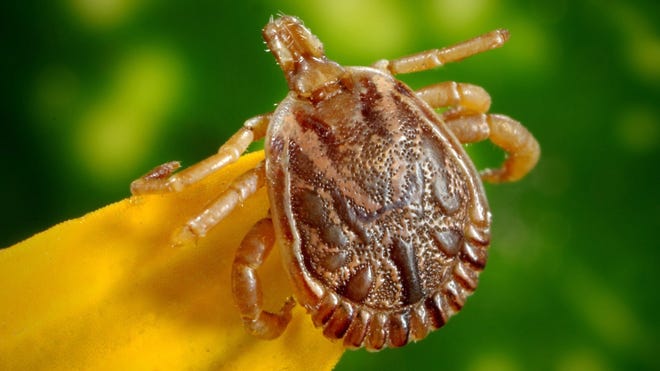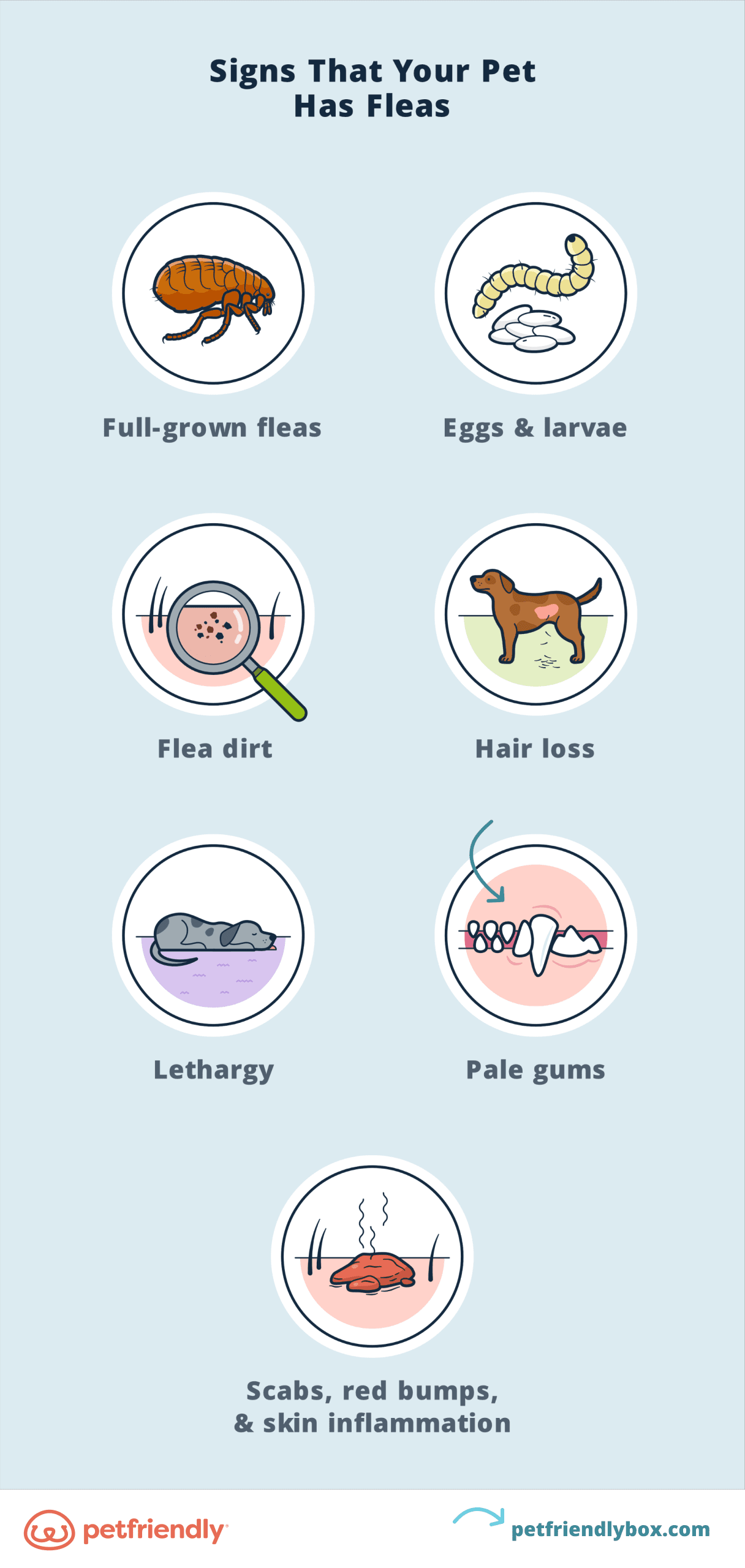Key Takeaways:
- Regularly check your dog for signs of parasites such as fleas, ticks, and worms.
- Parasites can cause various health issues in dogs, including skin irritation, anemia, and digestive problems.
- Preventive measures like using flea and tick treatments and administering deworming medication are essential to keep your dog parasite-free.
- Some parasites can be transmitted to humans, so it's crucial to protect both your pet and yourself from infestations.
- If you suspect your dog has parasites or notice any unusual symptoms, consult a veterinarian for proper diagnosis and treatment.
Are you a dog lover? Do you want to ensure the health and well-being of your furry friend? Then, understanding the topic of parasites in dogs is essential for you! Did you know that nearly 70% of dogs have some form of parasite at any given time? These tiny creatures can wreak havoc on your beloved pet's health and happiness. But fear not! By delving into this subject, you will gain valuable knowledge on how to protect your four-legged companion from these pesky invaders. So, let's dive right in and explore the world of parasites in dogs together, ensuring a long and joyful life for your canine companion!
What are parasites and how do they affect dogs?
Parasites are organisms that live on or inside another organism, known as the host, and depend on the host for their survival. In the case of dogs, parasites can cause various health problems and discomfort. They can affect different parts of a dog's body, such as the skin, intestines, or blood.
When parasites infest a dog, they feed off its blood or tissues, causing irritation, itching, and sometimes even severe diseases. Some common parasites that affect dogs include fleas, ticks, worms (such as roundworms and hookworms), and mites. These parasites can transmit diseases to dogs or cause other complications if left untreated.
Fleas
Fleas are small insects that live on the skin of dogs and feed on their blood. They can cause intense itching and discomfort for the dog. Flea bites can also lead to allergic reactions in some dogs.
Ticks
Ticks are external parasites that attach themselves to a dog's skin and feed on its blood. They can transmit diseases like Lyme disease or Rocky Mountain spotted fever to dogs.
Worms
Intestinal worms like roundworms and hookworms can infect a dog's digestive system. These worms can cause symptoms like diarrhea, weight loss, anemia, and even death in severe cases.
The importance of knowing about parasites that can affect dogs
It is crucial for dog owners to be aware of the parasites that can infest their pets because early detection and treatment are essential in preventing further health complications. By understanding the types of parasites that commonly affect dogs, owners can take preventive measures to keep their furry friends safe and healthy.
Regular check-ups with a veterinarian and routine parasite prevention measures, such as using flea and tick preventives or administering deworming medications, can help protect dogs from infestations. Additionally, knowing the symptoms of parasite infections can prompt dog owners to seek veterinary care promptly.
Common types of parasites that infest dogs
There are several common types of parasites that can infest dogs. These include:
Fleas
- Fleas are small insects that live on a dog's skin and fur. They cause itching, discomfort, and can transmit diseases.
Ticks
- Ticks are arachnids that attach themselves to a dog's skin and feed on its blood. They can transmit diseases like Lyme disease.
Roundworms
- Roundworms are intestinal worms that infect a dog's digestive system. They can cause diarrhea, vomiting, weight loss, and other health issues.
Hookworms
- Hookworms are another type of intestinal worm that can infect dogs. They feed on blood from the intestinal wall and can cause anemia and other complications.
Preventing parasite infections in dogs: Tips for dog owners
To prevent parasite infections in dogs, there are several important steps that dog owners should take:
- Maintain regular veterinary check-ups: Regular visits to the veterinarian allow for early detection of any potential parasitic infections or risks.
- Use preventive medications: Administering flea and tick preventives as recommended by a veterinarian helps keep these parasites at bay.
- Practice good hygiene: Regularly grooming and bathing dogs can help remove any external parasites and keep their skin healthy.
- Keep the living environment clean: Regularly cleaning and vacuuming the house, especially areas where dogs spend most of their time, helps reduce flea infestations.
- Dispose of feces properly: Cleaning up after dogs and disposing of their waste properly helps prevent the spread of intestinal parasites.
Symptoms of a dog infested with parasites
A dog infested with parasites may exhibit various symptoms depending on the type of parasite. Some common signs that a dog may be infested with parasites include:
- Excessive scratching or biting at the skin
- Hair loss or thinning coat
- Irritated or red skin
- Vomiting or diarrhea
- Coughing or difficulty breathing
- Lethargy or weakness
Treatments available for different types of dog parasites
The treatment for different types of dog parasites varies depending on the specific parasite involved. Veterinarians may prescribe medications to kill and eliminate the parasites from a dog's body. Some common treatments include:
Flea and tick preventives:
These medications are applied topically or given orally to prevent fleas and ticks from infesting dogs. They kill existing fleas and ticks and provide long-lasting protection against reinfestation.
Deworming medications:
Deworming medications are used to treat intestinal worms in dogs. These medications kill the worms or inhibit their ability to reproduce, allowing them to be eliminated from the dog's body.
Medicated shampoos or dips:
In cases of severe external parasite infestations, veterinarians may recommend medicated shampoos or dips to kill and remove fleas, ticks, or mites from a dog's skin and coat.
Can humans also get affected by the same parasites that infest dogs?
Yes, some parasites that infest dogs can also affect humans. These are known as zoonotic parasites. For example:
- Fleas and ticks: Fleas and ticks can bite humans and transmit diseases like Lyme disease or flea-borne typhus.
- Intestinal worms: Some intestinal worms can be transmitted to humans through contact with contaminated soil or feces. For instance, roundworms can cause visceral larva migrans in humans.
To minimize the risk of zoonotic infections, it is important to practice good hygiene, regularly wash hands after handling pets, and take preventive measures against fleas, ticks, and other parasites for both dogs and humans.
In conclusion, it is important for dog owners to be aware of the parasites that can affect their pets. By taking preventive measures and seeking proper treatment, we can keep our furry friends healthy and happy.
What are the most common parasites in dogs?
The most prevalent parasites include roundworms, tapeworms, hookworms, whipworms, coccidia, and giardia.
What is the most serious parasite for dogs?
Heartworms are the most hazardous worms that infect domestic dogs. They are transmitted through mosquito bites and enter the dog's bloodstream, eventually reaching the heart where they grow in size. Heartworms can grow up to a foot long.
How do I know what parasite my dog has?
To diagnose intestinal parasites in dogs, your veterinarian will analyze a stool sample using a microscope. The presence and quantity of eggs or larvae in the sample will indicate the severity of the infestation. The specific type of parasite will also be identified.
What parasites can you get from a dog?
Is it possible for roundworms and hookworms to infect humans? Yes, these types of infections that can be transmitted from animals to humans are referred to as zoonotic infections or zoonoses. By educating yourself about these infections and taking preventative measures, you can safeguard not only your pets but also yourself and your family.
What are the parasites in dogs that aren't worms?
Dogs can be infected by various parasites other than worms, such as Coccidia, Giardia, and Spirochetes. Your veterinarian can diagnose, treat, and prevent all of these intestinal parasites effectively.
What does dog poop look like with parasites?
Whipworms have a thread-like appearance that is larger on one end. Roundworms resemble spaghetti and can be several inches in length. Tapeworms are not usually visible in dog feces, but their egg sacs, which resemble grains of rice, can be found in feces or stuck to a dog's rear end.

















